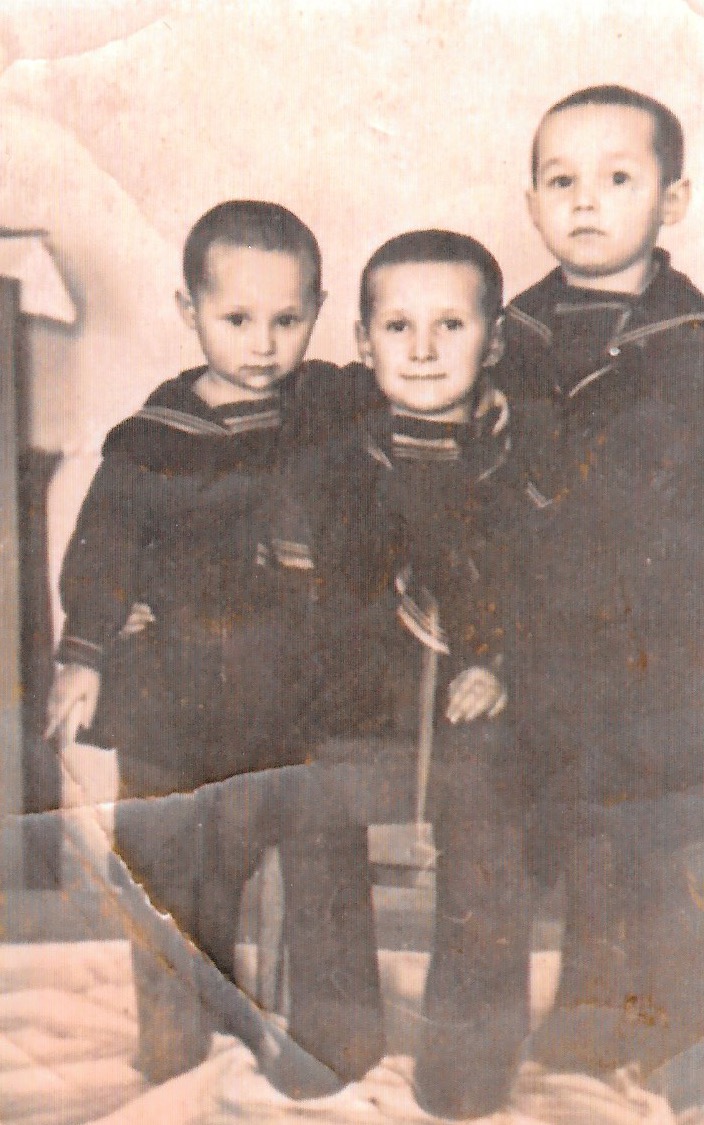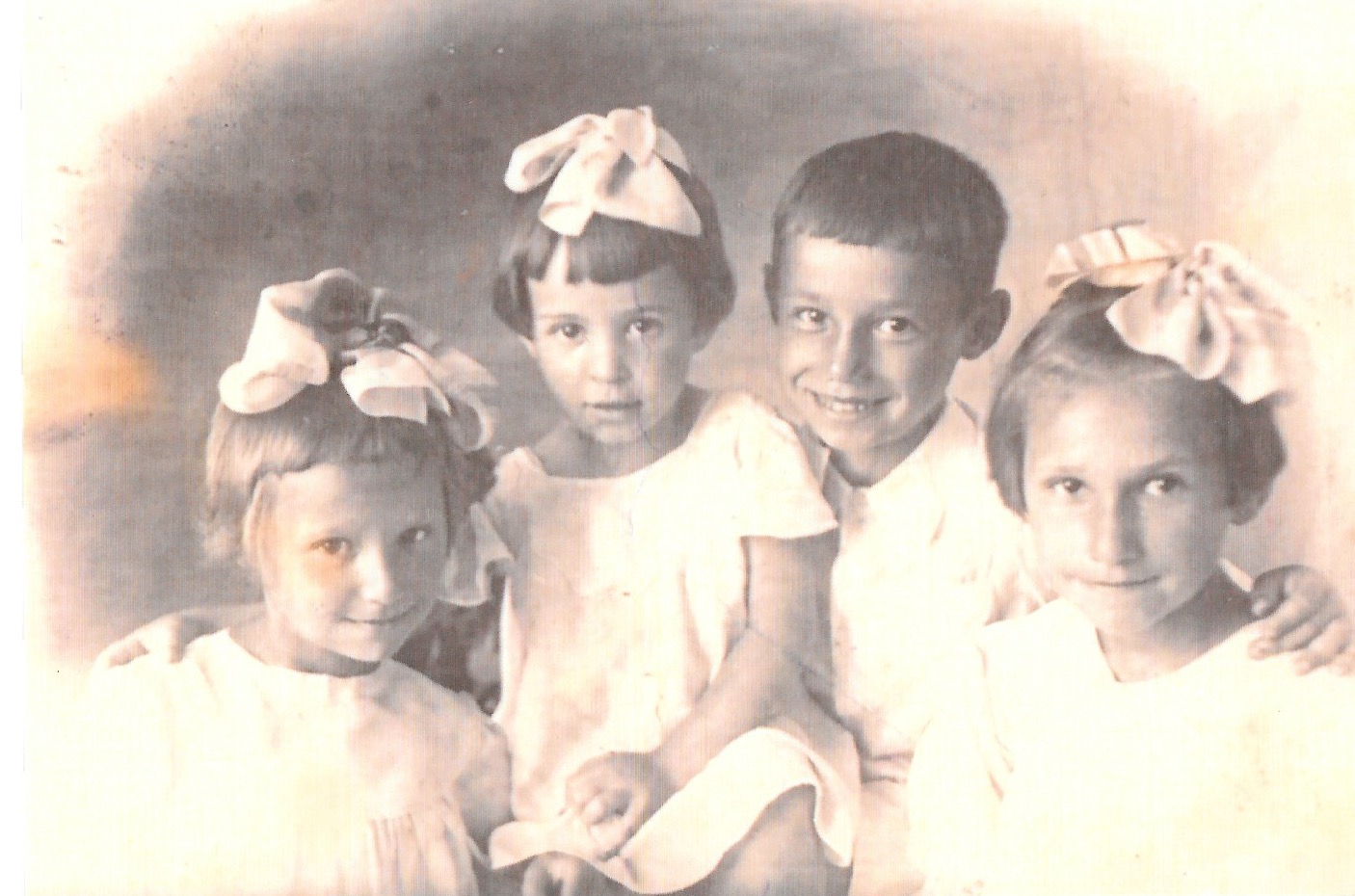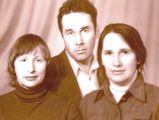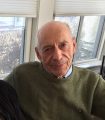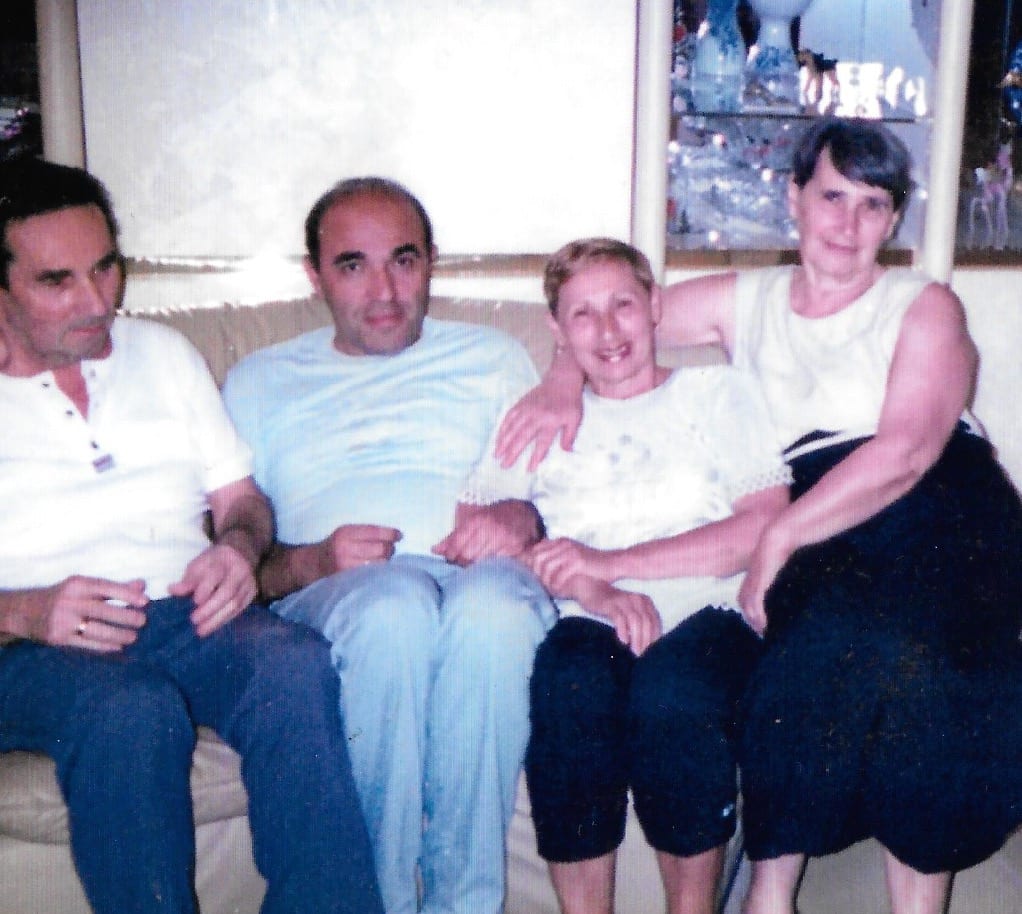Helen and Sol Krawitz Holocaust Memorial Education Center
Shimon and Sara Birnbaum Jewish Community Center
- Local Survivor registry
- TAMARA GURARIY
- Local Survivor registry
- TAMARA GURARIY
Survivor Profile
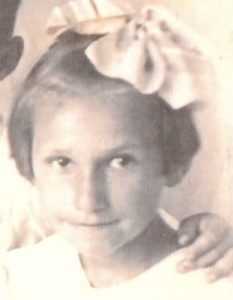
TAMARA
GURARIY
(1936 - 2019)
PRE-WAR NAME:
TAMARA RABINOVICH
TAMARA RABINOVICH
PLACE OF BIRTH:
MOSCOW, RUSSIA
MOSCOW, RUSSIA
DATE OF BIRTH:
OCTOBER 4, 1936
OCTOBER 4, 1936
LOCATION(s) BEFORE THE WAR:
ARHANGELSK, RUSSIA
ARHANGELSK, RUSSIA
LOCATION(s) DURING THE WAR:
OMSK, SIBERIA; VETLUGA, SIBERIA
OMSK, SIBERIA; VETLUGA, SIBERIA
STATUS:
CHILD SURVIVOR
CHILD SURVIVOR
RELATED PERSON(S):
ILYA GURARIY - Spouse,
ZIMA RABINOVICH - Father (Deceased),
ALEXANDRA RABINOVICH - Mother (Deceased),
TSILYA RABINOVICH, Sister ,
BORUS RABINOVICH, Brother ,
ALEXANDER GURARY - Son,
BENJAMIN GURARY - Grandson,
ELLEN GURARY - Granddaughter,
MICHAEL GURARY - Grandson
-
BIOGRAPHY BY NANCY GORRELL
Tamara Rabinovich was born in Moscow on October 4, 1936. Her father came from the Ukraine, and her mother came from Belorussia or Belarus. They both came to study in Moscow where they met. Tamara’s father was in the military, the Soviet Army at the time. They married in 1935. Soon after Tamara was born, they left Moscow for Ryazan. Tamara’s brother, Borus was born there the next year. After that, her sister, Tsilya, was born the following year. The three siblings, so close in age, were always close in school and life. As Tamara describes in her interview, “In school we were first grade, 2nd grade and 3rd grade.” (Refer to the photos of Tamara and siblings in Related Media). She also recalls with fondness her childhood “valenki boots” that comforted her from the cold (Refer to photo in Related Media).
Tamara’s father was in the military their whole lives. The family followed him throughout his career and during the war years to different locations in Russia. Not too long after her sister was born, Tamara and her family followed their father up north to Archamgelsk. In 1941 they evacuated to Omsk, Siberia during the invasion. They joined her grandmother and grandfather with their sick daughter who went there for improved climate for her malaria. They endured harsh conditions, with 11 people living in one room—five children and Tamara’s mother sick with tuberculosis all alone with three children. Tamara, the oldest sibling was only five years old at the time. She recalls a traumatic evacuation ride to Omsk, little or no food or drinking water on the train and bombings along the way.
In 1944 Tamara’s father went to Vetluga to teach student soldiers how to shoot from the tanks during the war. Tamara and her family went with him and stayed there until the end of the war. After the war, they returned to the city of Proskurov in the Ukraine where lived in the post-war period. It was in the Ukraine that her sister changed her name because of the anti-Semitic bullying. Later in her school years, Tamara experienced anti-Semitism when she was not awarded the gold medal for high grades, and therefore, didn’t get to go to the University as the others who had the gold medal did. She did go to the Institute for Engineering in Charkov. There she met her future husband, Ilya Gurariy on the street.
Ilya and Tamara married a year and a half later and moved to Kiev, Ilya’s hometown. Tamara got her degree in engineering and spent the next 30 years building roads and bridges in the Ukraine and Russia, including working at Chernobyl. They lived in Kiev until they came to the United States in 1992 to be with their son who emigrated in 1990 with his family. Alexander was named after her mother, Alexandra. He lives in Bridgewater. Today (2017), Tamara and Ilya have one son, four grandchildren and four great grandchildren. Tamara’s brother lives in Kiev, her sister lives in Israel. Her mother passed in 1951 of tuberculosis and her father passed in 1989. According to Tamara’s interview, she did not work as an engineer in the United States due to the language problem. Instead, she retired to help with the grandchildren.
-
SURVIVOR INTERVIEW:
INTERVIEW WITH TAMARA GURARIY
DATE: OCTOBER 11, 2017
LOCATION: Jewish Family Service, Somerville, New Jersey
INTERVIEWER: Nancy Gorrell
Translator: Elena Volkova
Q: Describe your family background.
My mother died when she was 35 years old of tuberculosis. That was in 1951. My father came from the Ukraine to study in Moscow and my mother came from Belorus, Russia also to study in Moscow.
Q: When did they go to Moscow to study?
Who knows? My mother and father met in Moscow, and he was in the military. My parents married in 1935. My brother was born in the city of Ryazan the next year. Next, after that, my sister, Tsilya, was born.
Q: How many siblings do you have?
I have three siblings, one born after the other. In school we were first grade, 2nd grade and 3rd grade. My brother’s name is Borus. Later, after the war, my sister changed her name from Tsilya to Tania. It sounded less Jewish. She was living in the Ukraine, and she was bullied in her small anti-Semitic town. Now she’s living in Israel and she is Tsilya again.
Q: What did your father do for a living?
My father was in the military our whole lives. We moved from place to place.
Q: Where did you go when war broke out?
Soon after I was born, we left Moscow and went to Ryazan for not too long, and after that, we went to up north to Archamgelsk. We kept moving because my father was in the Soviet army and we moved with him.
Q: Do you have any memories of that time?
I was only three (shows interviewer childhood photos).
Q: When did you go to Omsk, Siberia?
We went to the city of Omsk in 1941 because my father’s mother and father (Tamara’s paternal grandparents) were there with their daughter. Their daughter was sick with malaria and she needed a change of climate so when the war began a lot of relatives when to Omsk.
Q: What was life like in Omsk during the war?
We lived in one room with 11 people, five children and my mother sick with tuberculosis. We were without my father who was at the war and my mother was all alone. I remember one time in Omsk when I was sitting in a metal tub. My mother was washing me. Somebody came into the kitchen and asked her if she had extra space to stay with us. They said they are a wonderful family. Mama answered there are 11 people here already we don’t have any space. I remember this because I had all these soap bubbles on me and they were biting me. People were always knocking on the door begging for places to stay.
Q: Anything else you remember?
I remember the valenki boots (Refer to photo of Tamara with siblings in boots in Related Media) and we didn’t have running water. We had one metal sink with a cylinder for drinking some water .
Q: Do you recall the evacuation to Omsk?
I recall the stories my mother told me. I was only five at the time. When they started the evacuation, my mom was with three little kids all by herself. One time we had to crawl under the train to get to the train ahead that we needed to go on. We were afraid to crawl under the train. This was lucky because it started to go and we would have been killed. It was a traumatic memory from my mother. Eventually, we got on the right train. I do remember that there was no water or rest room on the train and no food. And no diapers.
Q: What do you know about your father during the war?
My father went to Vetluga in 1944. It was a military study place. He taught students how to shoot from the tanks during the war. And we went to him. We all lived with him there and there were less people in the room. We stayed there until the end of the war.
Q: What happened to your father and your family after the war?
We returned to the Ukraine to the city of Proskurov where we lived in military headquarters. There were some ruins in the city but not too much. There were a lot of children there. My sister changed her name there because of the anti-Semitic bullying.
Q: Did you experience anti-Semitism at that time?
No, not much, but sometimes there were remarks. The first was when I was in high school. In high school, my high grades were lowered, so I didn’t get a gold medal. Those who had the highest grades and got gold medals could get into the university without exams and they could go there. The anti-Semitism was very quiet. Nobody said anything. They never said it was because you were a Jew…it was just you didn’t write so well or do well.
Q: What education were you able to pursue after high school?
I went to an Institute for Engineering, not a university, and I specialized in building roads and bridges. That’s the work I did for 30 years. My last bridge was in Chernobyl. I was in Chernobyl after the accident.
Q: When did you get married and how did you meet Ilya?
I met him when I was 21 and I was an engineer. We met in the street near my Institute in Charkov. We got married about a year and half later and then I moved to Kiev, his hometown. I finished studying in Kiev and began my work. We lived in Kiev until we came to the United States.
Q: Descibe your family.
I have one son, four grandchildren and four great children. My son Alexander, named after my mother, went to the United States in the early 1990s, and we decided to emigrate to be with him. He lives in Bridgewater. We followed in 1992 to be with him and our grandchildren.
Q: Did you work in the United States as an engineer?
No, I had a problem with the language and I helped with the four grandchildren, so I retired. My brother today lives in Kiev; my sister is living in Israel. My father passed 1989. -
Sources and Credits:
Credits: SSBJCC Survivor Registry Interview October 11, 2017, Interviewer: Nancy Gorrell; Biography by Nancy Gorrell
RELATED MEDIA
